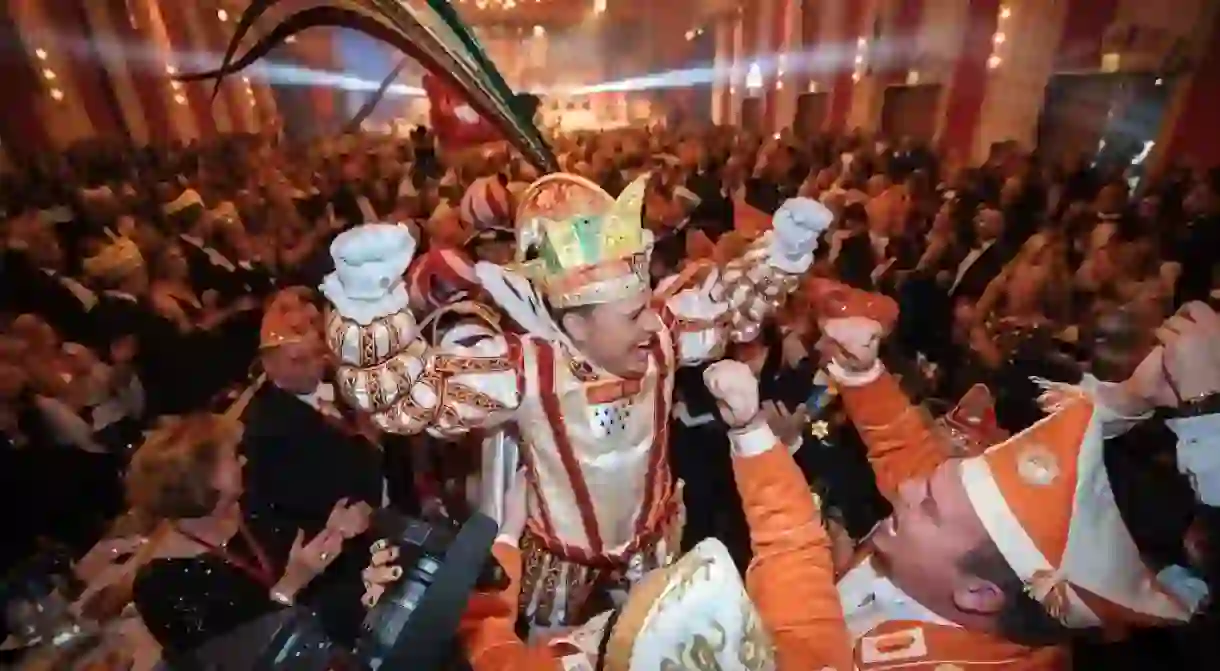Cologne Carnival: The Story Behind How it Became Germany's Most Famous Party

Cologne Carnival is known as Germany’s craziest party, bringing people from all over the world to the city every year. But the mad festival is rooted in medieval times and in customs and traditions more meaningful than what is often perceived as a week-long piss-up free from boundaries. Here’s how the Cologne Carnival became Germany’s craziest party.
Back in the Middle Ages, people in Cologne would expel winter and ring in the Easterly fasting period – hence the name Carnival which stems from the Latin expression carne vale, ‘meat farewell’. Documents from the time describe a joyous festival of food, drink and dance. Over the years, the festival gained momentum and by 1341 was such an excessive party that the city council decided to stop funding the then so-called ‘Mummerei’ celebrations. But locals were unimpressed by the decision and continued to take the party to the city’s streets and squares.

Inspired by the Venetian masquerade balls, Cologne’s 18th-century high society organised costume balls and events reserved for the upper class. When the French came to power, they successfully halted the street Carnival festivities, but only until the Prussians took over and revived the tradition.
The inception of the Cologne Carnival Committee in 1823 aimed to structure the Carnival and implement a set of ground rules to organise the many events. Going forward, the ‘Held Karneval’, and predecessor of today’s ‘Prinz Karneval’, served as a figurehead of the festival and would lead the public through the festivities. The character claimed his throne in the first ever Rose Monday parade through the city, which saw many characters participate that still take part today.
Several wars of the 19th and 20th century and the worldwide economic crisis in 1931 and 1932 caused the Rose Monday parade to be cancelled, but Cologne passionately clung to their favourite tradition and brought back the festivities every time. When the committee announced another cancellation of the parade due to the Second Gulf War in 1991, Carnival revellers and protesters took to the streets to march against war and destruction instead, demanding it should rain confectionary instead of bombs.

Over the years, groups, organisations and music ensembles came together and shaped the events people still flock to every year. Carnival sessions occupied the city’s large venues and invited music acts, comedians, dance groups and satirists on stage while the Carnival songs of Willi Ostermann provided the soundtrack of the festival and helped Cologne Carnival come to fame outside the city borders.
Today, Cologne counts dozens of Carnival bands, such as Black Föös, Höhner, Paveier, Cat Ballou or Brings and just as many satirists and dance groups. Some 150 Carnival clubs put on events across the city and participate in sessions, parades and costume balls between the kick-off on November 11 and Ash Wednesday.
The Cologne Carnival only seems to grow every year with millions of people pouring into the city in fancy dress for five days worth of singing, dancing and drinking.













